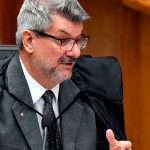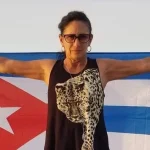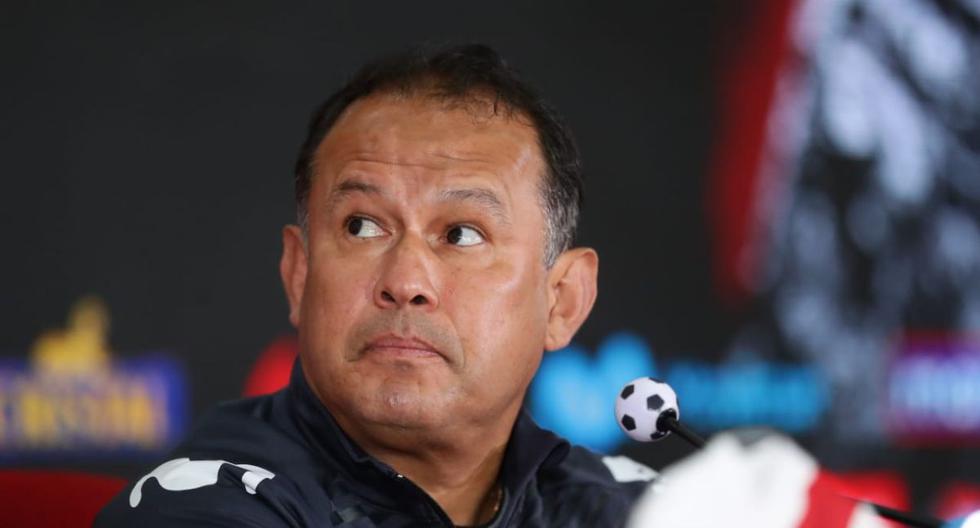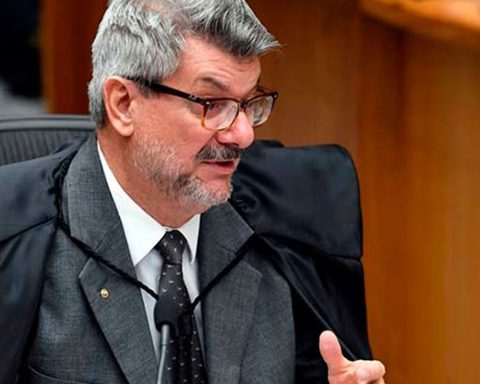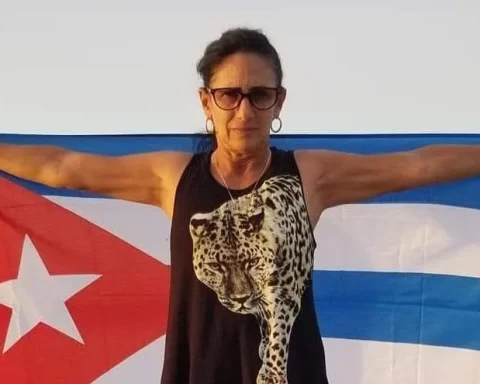It was only three seconds, but they revolutionized basketball. It was only a basket, but it was the first loss for the USA in an Olympic Games. Fifty years later, the US team still hasn’t conceded its defeat to the USSR in the Munich ’72 final.
“I’m not surprised by his reaction. It was very painful for them and it still is,” Iván Yedezhko, the protagonist of the controversial play, told Efe on Friday.
While that match was played in the middle of the Cold War, the anniversary now also coincides with the new antagonism between Russia and the West staged by the conflict in Ukraine.
The Russians, descendants of the Soviet Union, proudly remember the victory and even shot a film about it four years ago that was the highest grossing in the history of this country: “Going Vertical”.
On the other hand, the Americans, who had 63 consecutive Olympic victories since 1936, believe that everything was a conspiracy against them -the last play was repeated three times- forged between the Kremlin and the president of FIBA, Renato William Jones, to end with his hegemony.
THE ETERNAL THREE SECONDS
The Soviet version is that after Doug Collins made the two free throws that put the USA ahead for the first time (50-49), the referee forgot to call the regulation time-out, but the Americans dispute that the Soviet coach, Vladimir Kondrashin He didn’t get to order it on time.
In the second repetition, it was the table judges – the timekeeper was a certain Joseph Blatter, future president of FIFA – who made a mess with the clock, which erroneously marked 53 seconds, so they had to be taken out again. background, which raised the spirits of the American delegation.
Further fueling the conspiracy theory was that Jones came down from the stands to demand a replay, something never seen before.
Finally, in the last repetition, when the Americans were already singing victory, Yedezhko gave an incredible pass “to the cosmos” of more than 25 meters that was miraculously used by Alexandr Belov, to the disbelief of rivals and spectators.
Belov, who died a few years later, was closely defended by two American players, but managed to rise above them and score the two points under the basket that gave his team a historic victory (51-50).
Not everything was there. The Cold War was not over yet. The USA appealed the result, but the appeal committee decided against it 3-2. The final vote went to a Hungarian, whose parents died when Soviet tanks entered Budapest in 1956. The other two votes went to a Cuban and a Pole, allies of the Kremlin.
THE 25 METERS PASS
When asked who came up with the idea, Yedeshko smiles. And it is that a year before the Belarusian point guard made the same move in a friendly match against the USA played in kyiv.
So, there were two seconds left in the first half, but the receiver of the pass was also Belov. The Americans forgot.
“The idea? We owe it to (Charles) McMillen », he explains, alluding to the American center who defended him when he was going to play baseline.
For some reason, the 2.11m American took several steps back, allowing the Soviet free throw the ball. McMillen blames the Romanian referee for pointing at his feet, even though the rules allowed him to be close to the line.
“If he hadn’t been delayed, I would have had to go three or four meters back and it would have been impossible to pass the ball,” he says.
At that moment, Belov nodded to him, Kondrashin gave him the thumbs up, and the rest is history.
“I remember everything like it was yesterday. I often wonder how long those three seconds last because they never end », she says with a laugh.
TWO BELOV AND A HERO, KONDRASHIN
The best player on the team was another Belov, Sergei, who scored 20 points in the final. Without his performance, the USSR would not have hung the gold. The same can be said for Yedeshko’s pass and Belov’s basket at the last second.
Still, Yedeshko believes the credit went to the coach, as the team included players from six Soviet republics.
“The art was to make a team with those players. My Lithuanian colleague Modestas Paulauskas said it. We were beautiful flowers and Kondrashin turned us into a bouquet and placed it where it could shine the most », he explains.
Yedezhko believes that the decision to leave him and the Lithuanian on the bench in favor of the fast Georgian players was decisive for the USSR to get away on the scoreboard in the first half.
“They weren’t expecting it,” he says.
The Soviet victory was repeated in Seoul 1988, after which the United States would participate in the Olympic Games with a professional NBA team starting with the Barcelona 1992 Dream Team led by Jordan, Magic and Bird.
SILVER MEDALS WITHOUT OWNER
Half a century later, Americans refuse to accept the medals, which remain at the International Olympic Committee headquarters in Lausanne.
“Those medals will be in Lausanne for another thousand years,” McMillen said in a recent interview, a position shared by all of his peers.
Along the same lines, Kenny Davis and Tom Henderson have written in their wills that their children never collect the silver medals.
Although the experts remember that the American team was very inexperienced, that they missed Bill Walton, that they refused to play in Munich, that the USSR allowed themselves to be traced back with childish errors in the last minutes and that the Soviets confirmed their worth by proclaiming themselves world champions in 1974.
«Losing against the USSR was like a funeral for them. They were, are and will be the best. They have the NBA, college basketball. They are the best, without a doubt. That’s why, because they are so big, they don’t accept defeat and remain angry », he points out.
Yedezhko acknowledges that the conflict in Ukraine has once again sharpened the rivalry between the Kremlin and the White House.
“The US wants to dominate the world and impose its will on the Europeans. I believe that Americans are not well informed. But I have a lot of appreciation for the American people. When we went there to play they treated us very well », she assures.
In addition to Yedezhko, three other players from that Soviet team are still alive: the Lithuanian Paulauskas, the Ukrainian Polivodá and the Kazakh Zharmukhamédov. EFE






